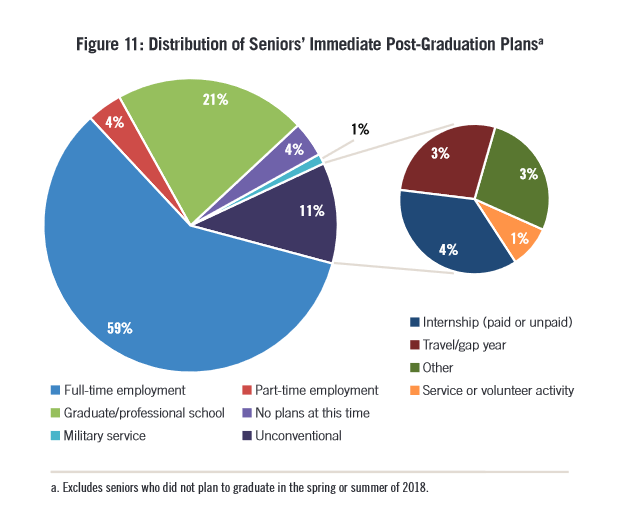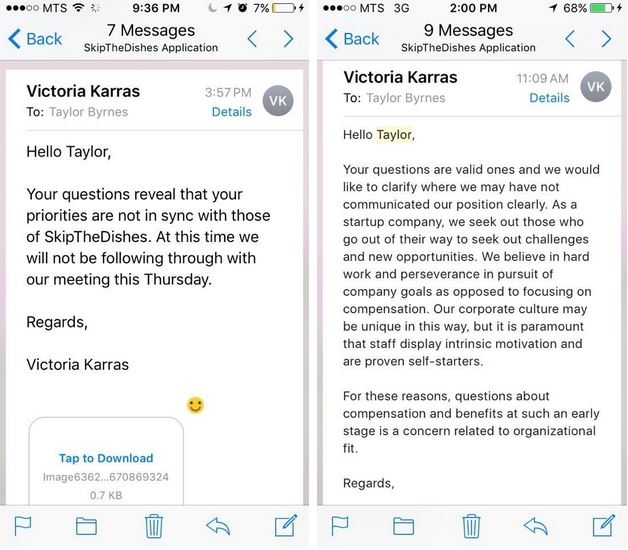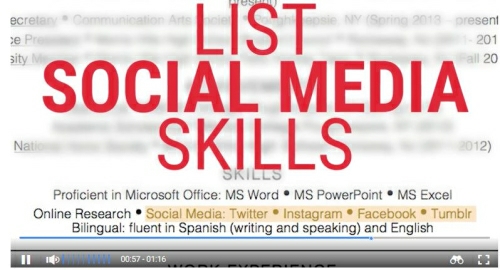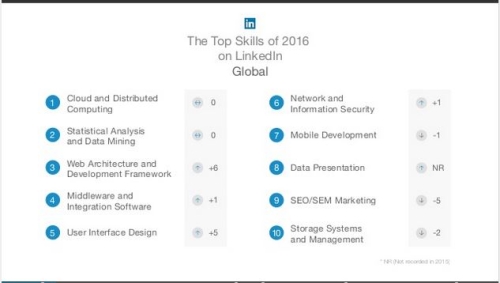Relaxing Dress Codes
Just as schools are relaxing their dress codes, so are companies, including some financial firms. For schools, motivation comes from reducing body shaming and recognizing that gender isn’t binary.
At investment firm KKR, executives sent a memo to announce a new dress code. The rationale is stated, “Given the changing nature of workplace towards less formality…we believe this is the right change for our employees.” A Wall Street Journal article explains that KKR follows Goldman and JPMorgan in easing requirements in order to compete with technology firms for talent.
In the memo, KKR doesn’t give examples of acceptable and unacceptable attire, leaving the decision to employee discretion: “We trust you all to strike the right balance and exercise good judgment.” But executives did include this caveat: “At the same time, we recognize that many of our clients and other external relationships have a more formal expectation of professionalism. So please always have business attire available.”
Discussion:
How important is a company’s dress code to your job search? Could a more relaxed dress code make a difference in accepting an job?
Should KKR be more specific, as companies such as Starbucks are, in what is acceptable attire?
Noncompete Agreements for Interns
A Wall Street Journal article reports that college interns are increasingly asked to sign agreements that restrict their job choices in the future. “Noncompete, nondisclosure and forced arbitration agreements,” which have been common for senior-level employees, have made their way down the ranks.
Now, interns are asked to sign agreements on their first day with a company, and they don’t always understand what they’re signing. An agreement can prevent a new grad from, for example, accepting an offer with a competitor within a geographic region.
Some agreements are important for companies to protect their intellectual property and preserve confidentiality, but critics say they go overboard. Also, such agreements may not hold up in court, particularly when they affect low-skilled workers.
Bottom line: interns should be careful about what they sign. An agreement may be more of a deterrent and might not inspire legal action, but students shouldn’t have to feel as though their choices are limited right after graduation.
Signing image source.
Noncompete image source.
Discussion:
What’s your experience with these employment agreements?
What would you do if asked to sign one?
What should companies do differently to protect themselves?
How to Navigate Multiple Offers
It’s one of those “good problems”: getting more than one job offer. But navigating the relationships and making a decision can be tough.
A Wall Street Journal article tells the story of a man faking his own death to avoid telling a company that he didn’t want to take the job after accepting an offer. According to an executive at the staffing company Robert Half, “ghosting” a prospective employer is most common among people out of school between two and six years. More and more, employers receive last-minute text messages or no-shows on the first day of work.
A management consultant believes the trouble is that college students lack the communication skills to handle these situations more professionally: “This is the generation that breaks up by text message, so in a professional context, to have to let someone down or give bad news was terrifying.”
Twice this past semester, students asked me for advice in reneging offers. Overall, I’m not a fan of the tactic. To me, it’s an issue of integrity: when students make a commitment to one employer, they shouldn’t change their minds when a better offer comes along. I also worry about their reputation in the industry—and whether their expectations will be too high for the new job, and they’ll end up disappointed. At Cornell, students also give up their access to career services in the future when this happens.
But students do what is best for them. What matters after the decision is how it’s communicated. I always suggest a phone call rather than an email, which takes courage. A direct, honest approach is best, with an apology and some understanding of how the decision affects the employer, who’s left with an unfilled position and additional recruiting time.
Ideally, students get offers at the same time with the same decision deadlines, but of course, that’s not always the case, and comparing offers becomes challenging. The WSJ article recommends these practices for evaluating and accepting job offers:
DO
* Make clear early what you’re looking for in a new job.
* Ask employers their timeline for making a decision.
* Express appreciation and enthusiasm when receiving an offer.
* Take time to assess each offer carefully, weighing both financial and quality-of-life factors.
DON’T
* Communicate important decisions by text or email.
* Try to pit one employer against another in a bidding war.
* Respond to a job offer by announcing that you already have a competing one.
* Base your decision solely on pay.
Discussion:
Have you been in a situation of having multiple offers? How did you handle it?
Have you reneged on an offer? How did you communicate the decision, and how did the employer react?
What other advice would you give students who have multiple offers?
Robots Screen Candidates' Social Media
A Wall Street Journal video explains how DeepSense uses artificial intelligence to analyze a job candidate’s personality. When companies post a job, recruiters or hiring managers identify what is most important for success; for example, how important is teamwork or project management? DeepSense then looks at a candidate’s social media profile to assess personality.
Founder Amarpreet Kalkat explains that the system may review a social media profile for only six seconds and will generate a report about the applicant’s DISC profile (a personality assessment) and “Big Five” personality traits. Using psycholinguistics, the computer analyzes language the candidate uses.
Kalkat says their results are 75% accurate, while traditional personality tests are 82% accurate.
Discussion:
What’s your view of using AI in this way? How confident would you be applying for a job that uses this technology?
How relevant is personality to a position? What are the advantages to a company of using such a system, and what are the potential disadvantages?
The video refers to “DeepSense,” but the website shows “DeeperSense.” How do you explain the discrepancy?
Acting Attorney General's Credentials Questioned
Acting U.S. Attorney General Matthew Whitaker seems to have inflated his self-description as an “Academic All-American.” The title appeared on a bio for his previous law firm’s website, on an application for a judge position in 2010, and on a resume discovered from 2014.
Whitaker played football at the University of Iowa for two years, but he didn’t receive the official honor, according to the organization that grants the title. In 1992, the title went to another Iowa player.
Part of the confusion may be caused by a media guide produced by the university. An assistant athletic director admitted to describing Whitaker as “District VII academic All-American,” which is not correct.
Whitaker image source. Resume icon image.
Discussion:
The Wall Street Journal report doesn’t include a quotation from Whitaker. What, if anything, should Whitaker say to defend himself?
What on your resume could be called into question? Have you exaggerated any of your experience that could be discovered? Should you change anything to be more accurate?
How is this situation an issue of integrity? What other character dimensions could be at play here?
Good News, Bad News About Student Preparation for Work
A survey of freshmen and seniors at 500 U.S. colleges shows that students feel positively about their career preparation. The According to the National Survey of Student Engagement (NSSE), 93% of students say what they learned in school is relevant to their future career, and perhaps surprisingly, students with professional majors agree only slightly more than students in arts and sciences programs.
This is good news. But a Chronicle of Higher Education article identifies a disconnect: employers aren’t so confident about graduates’ preparation. Employers want students to immediately apply skills on the job, but faculty may not be teaching specific work-related skills, such as running a meeting or writing memos—two examples from the Chronicle article.
Discussion:
Students of business communication certainly know how to write a memo—or more accurately, an email. What other skills should be included in a college curriculum for any major?
One argument is that employers are responsible for skills training, while the university teaches critical-thinking skills. What’s your view?
What report writing principles does the NSSE follow, and how could it be improved? Particularly analyze the charts and graphs, such as the one shown here.
Video: "The Columnists on Risk"
The Wall Street Journal has gathered ideas from artists, celebrities, and business people on taking risks. Risk-taking is essential to address situations that conflict with your values, to have difficult conversations, to innovate, and to advance your career.
To demonstrate courage, we must assess risks. in his book, Moral Courage, Rushworth Kidder identifies three questions to ask ourselves when faced with a decision that requires courage. First, we must be willing to face ambiguity and confusion. Situations that require courage are rarely straightforward. Can we handle conflicting, complex points of view without having one “right” answer? Second, are we willing to face exposure? By taking action, we make ourselves vulnerable. Are we ready for the leadership role that’s required? Third, can we accept the loss? We may lose our reputation, our relationships, or our job.
Discussion:
How would you describe your risk tolerance?
To which of the ideas shared in the video do you most and least relate?
Some people in the video describe physical risks. What’s the difference between physical and moral courage?
How do your own ideas about risk affect your work and your employment choices?
School Policy for "Natural" Hair
An 11-year-old black girl was sent home from school because her hair didn't fit guidelines for "natural" hairstyles. Over the summer, Christ the King Parish School in Terrytown, Louisiana, established a new policy, published in its handbook, banning hair extensions, which Faith Fennidy was wearing.
Videos show Fennidy crying, and critics called the policy discriminatory. But the Archdiocese of New Orleans defended the school's decision:
"This policy was communicated to all parents during the summer and again before the first day of school, and was applied to all students.
"The school offered the student's family an opportunity to comply with the uniform and dress policy and the family chose to withdraw the student; the student was not suspended or expelled."
A representative for the school also said, "We remain committed to being a welcoming school community that celebrates our unity and diversity." Fennidy decided not to return to the school.
Discussion:
- What's your view of the policy? Do you find it appropriate, discriminatory, or something else?
- How do attire policies in companies compare? What examples of similar policies have been problematic for companies?
- Read more about the situation on BusinessInsider. How well did the school handle the situation? What, if anything, could have been done differently?
Scott Pruitt Resigns
Environmental Protection Agency (EPA) head Scott Pruitt resigned after months of accusations of overspending and other ethical issues. Questions about Pruitt's judgment involved expensive travel, getting a job for his wife, and underpaying for an apartment.
President Trump had supported Pruitt, but the controversy may have reached a tipping point. Discovery of secret calendars could have been the last straw. A whistleblower said Pruitt kept three different calendars to hide meetings.
In his resignation letter to the president, Pruitt referred to "unrelenting attacks on me personally, [sic] my family, are unprecedented and have taken a sizable toll on all of us." In a tweet, President Trump was gracious and complimentary.
Discussion:
- If you're familiar with Pruitt's history in the position, which of his alleged ethical lapses do you consider more serious? Which are less serious?
- On balance, do you agree with Pruitt that he was attacked? How might your own political views affect your perspective?
- Did he do the right thing by resigning? Why or why not?
- How does Pruitt's resignation letter differ from resignation letters written for corporate jobs?
Body Language During a Job Interview
A Business Insider article gives tips for body language, and some suggestions are better than others.
The best advice is to "sit up straight" and "walk in with your shoulders pulled back and head held high"―good for an interview and for posture. The given example is for when you approach a receptionist, and this is a good first test of your communication skills and how you treat people throughout the interview process. Also good advice is to "nix sweaty palms with cold water" at a restroom before the interview starts.
Other advice is questionable. The point of "hold still" and "don't cross your legs" is to avoid excessive fidgeting, but a natural, comfortable position is probably best. In an hour-long interview, you can certainly shift your body a bit, which may include uncrossing and re-crossing your legs a couple of times. You don't want to appear stiff; authenticity is best.
Discussion:
- Which advice from the article do you find most and least useful?
- In what ways do you tend to fidget? Have you found ways to control this, such as pulling back your hair or avoiding dangling jewelry?
Cornell Student Presents Thesis in Underwear
Upset about a professor's advice to wear professional clothing, a student at Cornell University delivered her practice senior thesis in her underwear. The news is making international headlines, and some of the facts presented aren't quite what transpired.
In this theater class, "Acting in Public," the faculty member encourages students to consider everything about their presentation, including dress. When a student wore cut-off shorts, she was asked to consider the impression she wanted to make.
Most students in the class did not agree with how the situation was portrayed, and 11 of the 13 other students in the class wrote a long description from their perspective. They write that, although they support the student's fight for equality, "All of us feel that our professor’s words and actions were unfairly represented in the post, with certain quotes taken out of context, and we wish to clarify any misunderstandings that may have occurred." They also explain that the professor "apologized for her choice of words, acknowledging that the notion of 'short shorts' on women carries a lot of cultural and political baggage." But the student wasn't in the classroom to hear this comment.
Discussion:
- Read the Cornell Daily Sun article and the other students' perspective. Whose side do you favor and why?
- How do you view the student's actions: courageous, distasteful, disrespectful, or something else?
- What's your opinion on "professional attire"? In what situations should people adjust what they wear?
- Compare this situation to an employment interview. What is similar, and what is different?
How to Talk About Failure During an Interview
A new podcast, Change Agent, explores creative solutions to people's problems. In one episode, "Telling the Truth," a recovering alcoholic talks about her challenges during job interviews. Should she explain the gap in her resume?
For help, the moderator looks to Domino's, which had notoriously bad reviews of its pizza. CEO J. Patrick Doyle explains how the company took an open approach to admitting failure. Doyle led a turnaround by running commercials admitting criticism about their pizza, for example, that the crust "tastes like cardboard." The results are documented in a Domino's video posted on YouTube.
The woman looking for a job was able to apply what she learned during a mock interview. Part of her recovery process is about being truthful, so was open to the strategy.
During the podcast, we hear the woman admitting her challenges, although she goes on longer than may be useful or appropriate during a job interview. Still, the interviewer reacted positively to her telling the truth.
Discussion:
- What are the risks to admitting failure in this way?
- How could you apply this strategy to your own job search? What failing or misstep could you explain in a way that demonstrates self-reflection and learning from failure?
- In what ways does the podcast demonstrate authenticity and vulnerability?
Podcast About Using LinkedIn for Networking
In this 8-minute podcast, hear how Lizzie, a Cornell University student, musters up the courage to contact people on LinkedIn for informational interviews. Her message is shown here.
WSJ Article Encourages Exotic Clothes for Networking
 Time to go shopping. A Wall Street Journal article profiles Pradeep Aradhya, a digital marketing executive and investor, about his approach to networking. He says that networking didn't come easy to him, but he now attends events for six to eight hours a week and finds ways to stand out.
Time to go shopping. A Wall Street Journal article profiles Pradeep Aradhya, a digital marketing executive and investor, about his approach to networking. He says that networking didn't come easy to him, but he now attends events for six to eight hours a week and finds ways to stand out.
Aradhya follows a model he learned to "entertain, enlighten or enrich" others. He also changed his wardrobe from traditional suits to "crushed silk or woven with metallic thread, and wears exotic-looking designer shoes." According to Aradhya, he doesn't always have to start conversations; often, people will comment on his unusual clothing. Another strategy is saying something shocking, such as introducing himself as the king of India.
An article in Career Ladders offers advice for networking attire. The recommendations sound prescriptive-based on the event, for example, a barbecue or a cocktail party. For women going to a cocktail party, for example, the article suggests the following:
Choose a cocktail dress that is flattering and exposes a tasteful amount of skin. No plunging necklines or bandage dresses, please. Look for a hem that grazes the knee - any longer, and you will look dated; any shorter, and you will look like you belong in a club. Dresses made in chiffon or silk lay nicer than satin, which tends to rumple in all the wrong places. A silhouette that flatters almost any women's body is sleeveless, with a scoop neck, fitted waist and slightly fuller skirt. Avoid fussy prints and stick to colors that translate well at night: black, gray, shades of red and navy. Wear open-toed heels and your favorite ear or neck sparklers for a finishing touch.
Compared to Aradhya's strategy, this is certainly a conservative approach.
Discussion:
- How do you balance presenting your "best self" and being authentic? Can you think of times when you felt inauthentic during a networking or another type of event? What were the circumstances, and what did you learn?
- How do you know what risks to take during networking? What's enough to distinguish you, and what's too much?
- How important do you think attire is during networking events? How difficult is it to overlook someone who isn't dressed for the part but may be a great business partner or hire?
Applicant Asks About Salary and Employer Cancels Interview

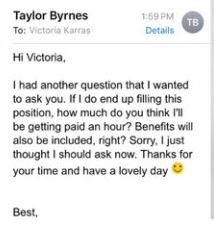 It was a tough lesson for Taylor Byrnes, looking for a menu developer position in Winnepeg. After a phone interview and before an in-person interview, she dared to ask her prospective employer, food delivery service SkipTheDishes, about wages and benefits. The company didn't appreciate the questions and cancelled the interview.
It was a tough lesson for Taylor Byrnes, looking for a menu developer position in Winnepeg. After a phone interview and before an in-person interview, she dared to ask her prospective employer, food delivery service SkipTheDishes, about wages and benefits. The company didn't appreciate the questions and cancelled the interview.
After the predictable outrage on Twitter, co-founder Joshua Simair said in a statement, "The email sent to Taylor was wrong and does not represent our team's approach or values," and "We are very disappointed in how it was handled. We do share a compensation package prior to hiring. As soon as we became aware of it on Monday, we reached out to Taylor to apologize for the email and reschedule her interview."
- Your thoughts? It typically is considered poor form to ask about salary on a first interview, but what about this situation? Did Byrnes behave badly? Did she make the situation worse with her posts on social media and therefore get what she deserved?
- How well did SkipTheDishes respond? Should they have done something else?
- Would you offer Byrnes the job if she's qualified? How easily can she and the HR staff get past this?
Resumes for Inexperienced Applicants
Business Insider recommends good advice for students and others with little work experience. For a resume, this video suggests focusing on accomplishments and highlighting social media skills, which could be coveted by employers.
But other advice may be outdated or inappropriate. For example, including a goal or objective at the top of your resume may not be necessary your interest is clear on your cover letter or if you're applying for a job through your school's on-campus recruiting program. In both cases, the job you want is obvious.
Career website The Muse goes further, suggesting an objective only when you're making a major career change-not for students, as Business Insider suggests, and Cleverism recommends the same.
Discussion:
- Which advice in the video do you find most and least helpful? What, if anything, contradicts what you have learned in the past?
- What other advice would you give to a high school student creating his or her first resume?
"Top Skills" According to LinkedIn Analysis
LinkedIn analyzed recruiting activity on the site in 2016 and identified the top 10 skills employers want. A more accurate heading may be skills for which employers search. Not surprisingly, all are technology related.
I'm glad to see Data Presentation make the list; it's a core skill in our Management Communication classes at Cornell. LinkedIn's commentary expresses companies' growing interest well:
Show me, don't tell me: For the first time ever, data presentation, which is visualizing data, makes the list with the #8 spot. With statistical analysis and data mining holding strong again this year at #2, employers need employees who can organize data so it's easy for people to understand.
In addition to the overall number, LinkedIn identifies skills by country, and we seem interesting differences. A few non-technical skills emerge when we drill down:
- HR Benefits and Compensation (Australia, Brazil, UK)
- Corporate Law and Governance (Australia, France, Singapore, UAE)
- Business Development and Relationship Management (Brazil)
- Public Policy and International Relations (China, India, South Africa, UAE)
- Social Media Marketing (China)
- Business Intelligence (China)
- SEO/SEM Marketing (France, Germany, Ireland, Netherlands, Singapore, UAE, UK)
- Compliance and Employment Law (France)
- Marketing Campaign Management (France, Ireland, Singapore)
- Retail Store Operations (Germany)
- Channel Marketing (Germany)
- PR and Communications (India)
- Economics (India)
- Recruiting (Ireland, Netherlands)
- Foreign Language Translation (Singapore)
- Renewable and Sustainable Energy (UAE)
- Mining and Commodities (UAE)
Of course, many of these involve technology, but they are not as tech heavy as, say, algorithm design.
LinkedIn's analysis also indicates, "Demand for marketing skills is slowing because the supply of people with marketing skills has caught up with employers' demand for people with marketing skills."
Discussion Starters:
- What, if anything, surprises you about these lists? Consider the source: LinkedIn. Could some of the data be skewed?
- Looking at the list of non-technical skills, what conclusions do you draw about business and about supply and demand in those countries?
Recruiter Rejects Candidate for "Vulgar Comments"
 The Society for Human Resources Management (SHRM) tells the story of a recruiter who rejected a candidate because of comments found on the dating app OkCupid. The recruiter, Sam Oliver, explains his decision in an article and describes the post: "[H]e was calling her obscene names and threatening sexual assault."
The Society for Human Resources Management (SHRM) tells the story of a recruiter who rejected a candidate because of comments found on the dating app OkCupid. The recruiter, Sam Oliver, explains his decision in an article and describes the post: "[H]e was calling her obscene names and threatening sexual assault."
Oliver also describes his process for screening candidates online:
"Like most recruiters, I use a variety of sources when evaluating candidates - LinkedIn, Facebook, Twitter, Instagram, AngelList, github, reddit, dribbble, the list goes on. Most people's social media is pretty benign: shared memes and jokes, vacation photos, interactions with friends and family. When looking at people's social media, I'm mostly looking to corroborate facts and timelines on their resume - where they live, previous jobs, alma mater, etc. If they've put enough information out there, I might also get an accurate glimpse of their personality, which is very helpful in hiring."
"Unfortunately for him, he had used his LinkedIn head shot as one of his OKCupid profile photos, and it was very easy for me to confirm his identity via a reverse Google image search. To any seasoned recruiter, I deduced his real identity using well-known tricks of the trade; people often do not realize how much information is public and readily accessible via social media."
Both the SHRM article and Oliver explain that the rejection is perfectly legal. You may be thinking that you can't discriminate against applicants, but that applies only to certain qualities, such as race, sex, and age. On the other hand, employers have a legal responsibility to maintain a harassment- and discrimination-free environment, and an employee who writes "threatening" messages online may put an organization at risk.
Although he had no obligation to, Oliver told the applicant why he wouldn't pass his resume along to his client, which gave the applicant a chance to deactivate some accounts and remove incriminating photos.
This situation is a good lesson for students seeking jobs. Assume everything you post can be retrieved and traced back to you.
Discussion Starters:
- Does the recruiter's decision surprise you? Why or why not? What are the downsides to rejecting a candidate based on social media posts?
- What advice from Chapter 12 would have helped this applicant?
- What about your own social media history may put your job search in jeopardy? Use Google and other sites to find as much information about yourself as you can.
Starbucks Loosens Dress Code
Again, Starbucks is allowing more individuality in its employee dress code. In 2014, the company allowed visible tattoos, and now the color palette has expanded, including hair dyes.
In a Lookbook, the company instructs employees to use their judgement and to ask if they have any questions; store managers have the final say. Clothes must be "clean, hemmed, wrinkle-free and in good repair," but a range of colors is acceptable instead of the previous black-and-white combination.
Hairstyles can be on the wild side (in my opinion), but the company isn't allowing "sprays, glitter, chalks or temporary products" for food safety reasons. The guidelines also instruct associates to "[t]ie long hair back with plain clips or hairbands to avoid contact with drinks or food. Please keep beards and mustaches neat and trimmed."
The Lookbook is detailed, with many acceptable and unacceptable examples of tops, bottoms, socks, and accents. Fortunately for employees, the guidelines are clear.
Discussion Starters:
- What, if anything, surprises you about Starbucks' new guidelines? Is anything missing?
- Why do you think the company is broadening what is considered acceptable dress?
Phrases to Avoid on Your Resume
Business Insider has identified nine phrases that "make hiring managers cringe." Some recommendations are based on data by ZipRecruiter, but much of them are the writers' opinions. Still, I agree with most of them, except "Microsoft Word." For students, this could be a differentiator, and I would include it for entry-level jobs.
It makes sense to avoid pronouns and general traits that can't be verified. "Team player" is my personal pet peeve; who would say "I'm not a good team player. I don't like people"?
In addition to the video, Business Insider offers more phrases to avoid, including "extracurricular activities" with the explanation, "Unless these activities are in some way related to the job you're applying for, no one really cares what you do in your spare time when they're skimming your résumé."
I'm not sure I agree. It depends what the activity says about you as a person, which some employers may care to know. You can also make a personal connection this way, and it could be a good icebreaker during an interview. Particularly for students, I'd keep it in.
Similarly, employers seem to like seeing applicants' volunteer work, for which LinkedIn added a section in 2011.
- We don't see any context for this advice. Would it differ depending on the industry, region, job, or level?
- How many of these phrases do you include on your resume? Will you omit them in the future?
- What other phrases could employers find annoying?










